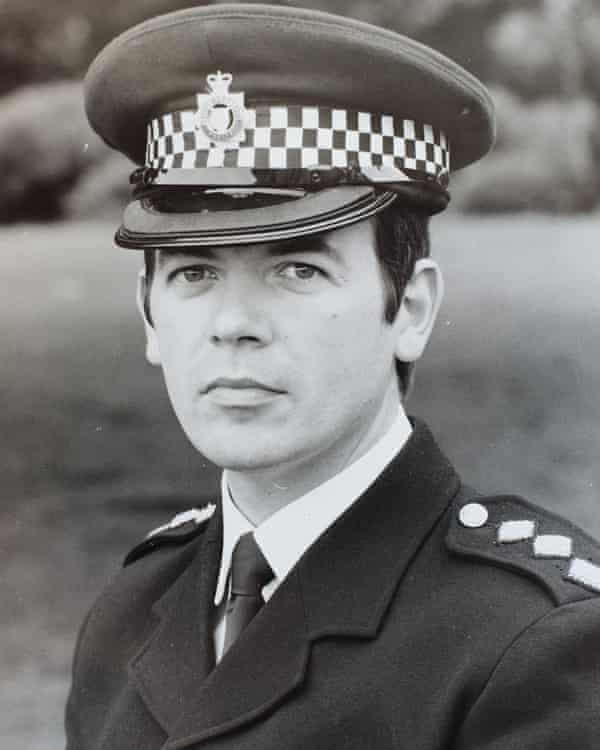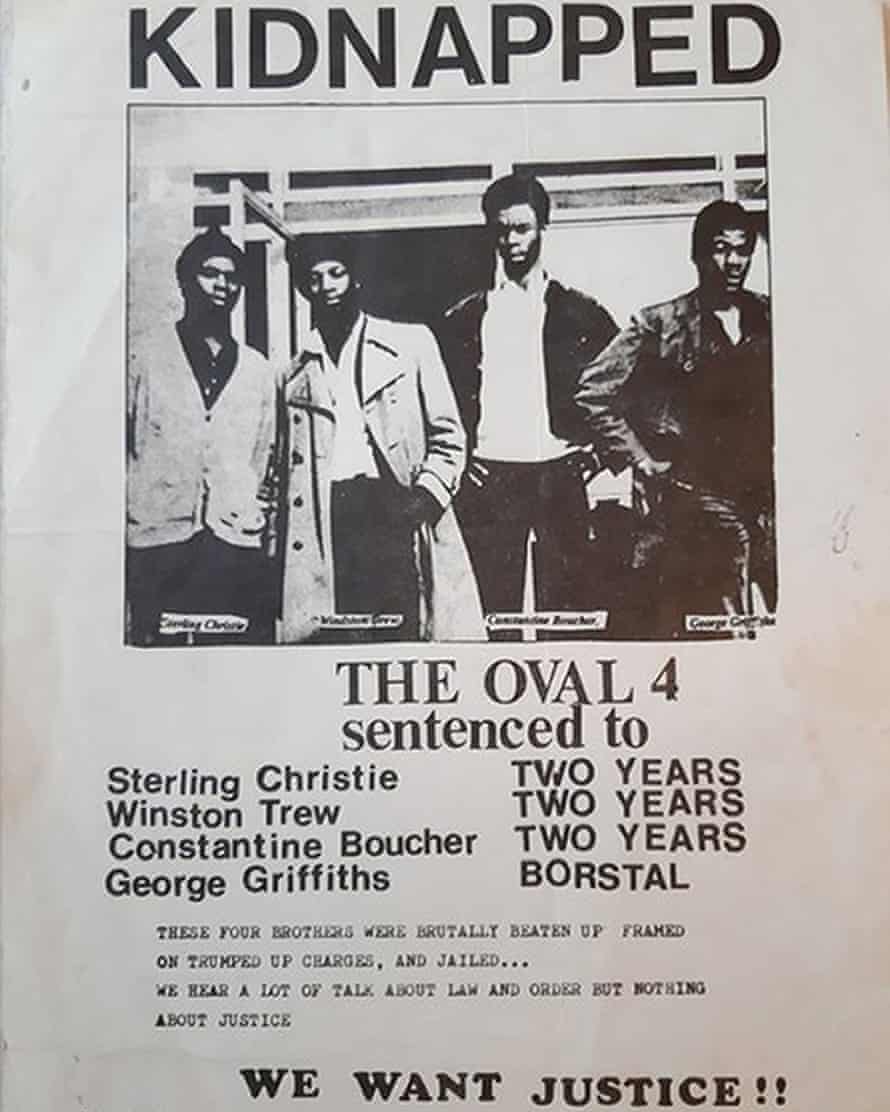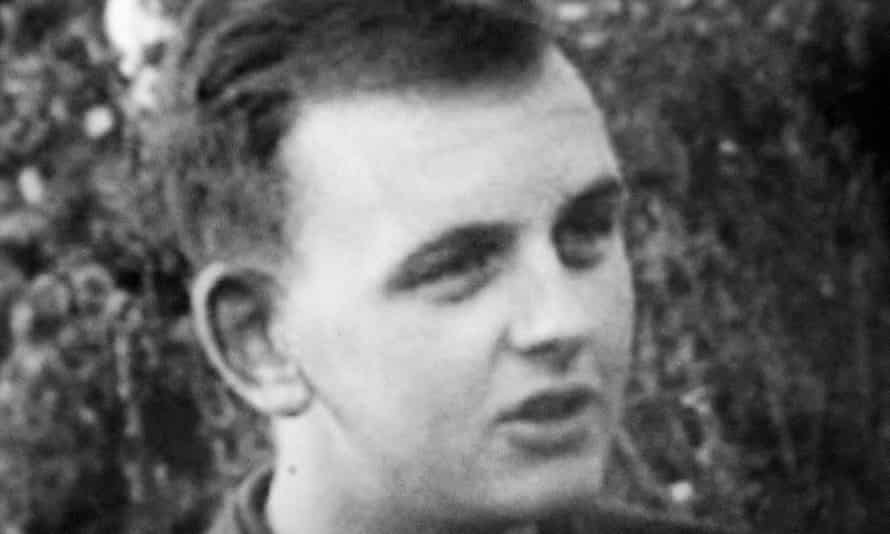As Line of Duty completes its sixth and probably last sequence, simply how near actuality was it?
As it occurs, the finish of the run coincides with the publication of Rot at the Core, an in-depth investigation into the life and occasions of one of Britain’s most spectacularly corrupt police officers, whose profession led to shame earlier than his demise in a jail cell.
The authors are a former detective superintendent, Graham Satchwell, who investigated corruption in his personal pressure, and Winston Trew, a sufferer of the bent officer, whose wrongful conviction from almost 50 years in the past was solely lately overturned.
“The first sequence jogged my memory of the movie LA Confidential, which additionally informed a strong story, however like many US cop exhibits piled up the useless our bodies far past the actuality,” stated Satchwell.
Author Winston Trew, whose wrongful conviction from almost 50 years in the past was solely lately overturned. Photograph: Martin Godwin/The Guardian
“Before Line of Duty we had not seen that in British drama. It jarred on me at first as a result of it’s simply not real looking, however now I’m so misplaced in the sheer enjoyment of the present that it doesn’t matter any extra.”
“I’ve to say I discovered it exhausting to consider,” stated Trew. “It’s a pleasant thought to have a girl from a gangster household who turns into a police officer [the character DCI Jo Davidson, played by Kelly Macdonald] however the concept that one lot of closely armed police seek out a pair of their fellow armed officers, and it appears to be like like there’s going to be a shootout between them, was – properly, all a bit too Hollywood for me.” The actuality, he stated, was that precise police corruption was subtler and extra mundane.
“The one omission in Line of Duty is the position that has typically been performed in police corruption on this nation by Freemasonry,” stated Satchwell.
“Putting that apart, it tells a number of elementary truths: firstly, that organised crime teams often have detectives ‘on facet’. This just isn’t a brand new phenomenon and goes again to the days of Billy Hill in the 50s and the Krays in the 60s.”
As for the position of the anti-corruption department AC-12, “police corruption just isn’t uncommon and investigating it’s a lonely enterprise. It creates distrust and dislike by different officers,” he stated. “As we’ve got seen in Line of Duty, cowardly, politically minded, over-ambitious senior officers are widespread and infrequently fail to behave towards suspected corruption of their ranks as a result of they worry they are going to be perceived as having failed.”
 Author and former police detective Graham Satchwell, from household {photograph}. Photograph: Martin Godwin/The Guardian
Author and former police detective Graham Satchwell, from household {photograph}. Photograph: Martin Godwin/The Guardian
The topic of Rot at the Core, which is now being promoted by its publishers as “the real Line of Duty”, is the late DS Derek Ridgewell, who was probably liable for extra particular person miscarriage of justice instances which have since been overturned than every other police officer in Britain. More instances involving his corruption are attributable to be heard at the courtroom of attraction later this 12 months, following referrals from the Criminal Cases Review Commission.
Ridgewell, a sociable and believable man, not not like the “Dot” Cottan character performed by Craig Parkinson in an earlier Line of Duty sequence, fitted up numerous folks in the Nineteen Seventies for crimes they’d not dedicated, whereas he was himself concerned in stealing greater than £1m – the equal of £4m immediately – in items that the police had entry to, which he bought through a widely known south London felony household.
Remarkably for the Nineteen Seventies, the proceeds of his crimes had been salted away in 5 financial institution accounts, together with one in Zurich, and a security deposit field. He additionally, as a humble detective sergeant, owned property and companies.
When he was ultimately caught, together with different corrupt officers, he employed Bernie Perkoff, the high lawyer utilized by many gangland figures, however was convicted of conspiracy to rob and jailed for seven years in 1980.
Asked by the governor of Ford jail why he had launched into such a corrupt path, he informed him: “I simply went bent.” He died in his cell in 1982 at the age of 37. Satchwell, a up to date of Ridgewell in the British Transport Police, suggests in the guide that it’s doable he was murdered.
 Oval 4 courtroom case. A poster calling for justice for Winston Trew, Sterling Christie and George Griffiths. The three males had been arrested – together with Constantine ‘Omar’ Boucher – at Oval tube station in 1972. Photograph: Winston Trew/PA
Oval 4 courtroom case. A poster calling for justice for Winston Trew, Sterling Christie and George Griffiths. The three males had been arrested – together with Constantine ‘Omar’ Boucher – at Oval tube station in 1972. Photograph: Winston Trew/PA
Trew, the son of a Jamaican police sergeant who introduced his household to Britain in the Nineteen Fifties, was arrested at the Oval tube station in 1972, together with three pals as they returned from a Black Power assembly in north London. The younger males, who turned often known as “the Oval Four”, had been crushed up and framed by Ridgewell for tried theft and assaulting the police on the London Underground, and jailed. It was one of a sequence of such instances that turned often known as the Stockwell Six, the Waterloo Four and the Tottenham Court Road Two.
Trew turned a lecturer in social research at South Bank University earlier than struggling a stroke in 2003. While recovering, he determined to research his case utilizing the National Archives and the Freedom of Information Act, and uncovered the ranges of corruption by which Ridgewell had been concerned.
While making an attempt to have his personal conviction overturned he met Satchwell, who was ready to make use of his personal contacts to find different beforehand hidden details about Ridgewell, and so they determined to collaborate on a guide.
In 2019, the lord chief justice, Lord Burnett, quashed the Oval Four’s convictions and informed them: “Our remorse is that it has taken so lengthy for this injustice to be remedied.”
For Trew, one main distinction between Line of Duty and his personal expertise in 1972 was, of course, the presence of black officers corresponding to Chloe Bishop (performed by Shalom Brune-Franklin) and Farida Jatri (performed by Anneika Rose) in the present sequence. “When we had been all fitted up, there have been solely white officers round.”
There is one chillingly up to date facet to the guide in Trew’s description of his arrest. “The man holding me was indignant and started making use of strain to my neck. I may hardly breathe. He was making an attempt to strangle me, I assumed. He then whispered in my ear: ‘Let’s see how fucking intelligent you at the moment are’.”
 DS Derek Ridgewell fitted up numerous folks in the Nineteen Seventies for crimes they’d not dedicated.
DS Derek Ridgewell fitted up numerous folks in the Nineteen Seventies for crimes they’d not dedicated.
One courageous witness, a Mrs O’Connor, tried to intervene and ultimately gave proof for Trew at his Old Bailey trial in 1972. She informed the courtroom: “The boy’s eyes gave the impression to be popping out of his head and his mouth was open as if he was choking to demise … That’s why I intervened to cease it.”
Despite her proof, Trew and his pals had been all jailed. “That sense of injustice stayed with me all the time – even after I wasn’t consciously fascinated with it,” he writes in the guide. “Before lengthy, it turned a characteristic in my dreams-cum-nightmares and had a recurring theme: I used to be trapped in a spot from which I couldn’t escape.”
“I’ve to say that the story of Ridgewell and the way he received away with it for thus lengthy is as near a Line of Duty story as the rest I’ve come throughout in real life,” stated Satchwell this week. “Good males stood by and did nothing.”




